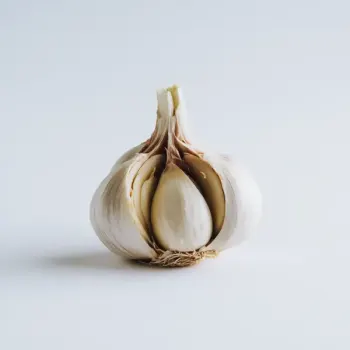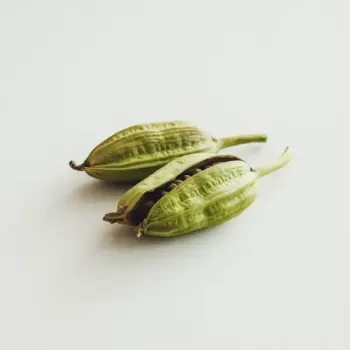Cloves and cardamom are aromatic spices essential in cooking, offering distinct flavors: cloves are warm and slightly astringent, while cardamom is sweet, spicy, and citrusy, used in various dishes to enhance flavor.

Cloves are the aromatic flower buds of a tree in the family Myrtaceae, Syzygium aromaticum. They are native to the Maluku Islands in Indonesia and used as a spice in cuisines all over the world.

Cardamom is a spice made from the seed pods of various plants in the ginger family. Native to the Indian subcontinent and Indonesia, it's used in both sweet and savory dishes, offering a complex flavor profile.
Cloves offer a warm, sweet, and aromatic flavor with a slightly astringent quality, while cardamom has a complex, slightly sweet, spicy, and citrus flavor. The texture of cloves is hard and they are typically used whole or ground, whereas cardamom can be used in pod form or as seeds. In terms of source, cloves are the bud of a tree, while cardamom comes from the seeds of a plant in the ginger family.

Your ultimate Recipe Box, Meal Planner, and Cooking Class all in one
Used in recipes like gingerbread, pumpkin pie, and spice cakes, cloves add a deep warmth. Expect a bold flavor, and use sparingly to avoid overpowering other tastes. Best used in Scandinavian pastries, Indian sweets, and spiced breads. Cardamom imparts a unique aromatic flavor that can be both sweet and savory.
Cloves are a perfect addition to mulled wines, spiced ciders, and chai tea. They infuse a strong, pungent flavor that warms the palate. Cardamom elevates drinks like Turkish coffee, masala chai, and various cocktails. Its citrusy undertones and mild spice add complexity to beverages.
Essential in rich stews and meaty curries, cloves add a penetrating depth. They can be used whole in slow-cooked dishes and removed before serving. Cardamom shines in lighter curries and stews, often found in Indian and Middle Eastern dishes. It adds a fragrant, sweet note without overwhelming the dish.
Both cloves and cardamom have health benefits and contain essential nutrients, though they are consumed in small quantities in dishes.
| Nutrient | Cloves ( per Teaspoon ) | Cardamom ( per Teaspoon ) |
|---|---|---|
| Fat | 1g | 0.4g |
| Fiber | 2.1g | 1.6g |
| Protein | 0.4g | 0.6g |
| Calories | 21 | 18 |
| Manganese | 30% DV | 80% DV |
| Carbohydrates | 4g | 4g |
Cloves can be used as a substitute for cardamom, but they will impart a different flavor profile, being more pungent and less citrusy than cardamom.
Both spices should be stored in airtight containers away from direct sunlight and heat to maintain their flavor and potency.
Yes, cloves generally have a stronger, more pungent flavor compared to the milder, sweet, and citrusy notes of cardamom.
While you can substitute one for the other, they have distinct flavors, so the result will be different. It's best to use them as per the recipe's requirements.
Cloves are commonly used in Asian, African, and Middle Eastern cuisines, while cardamom is prevalent in Indian, Middle Eastern, and Scandinavian cuisines.